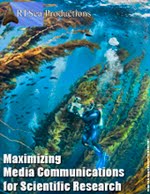skip to main |
skip to sidebar

 The Coral Reef Alliance, an international organization dedicated to coral reef conservation, is another good group worth looking into. They were participants in the recent International Coral Reef Symposium
The Coral Reef Alliance, an international organization dedicated to coral reef conservation, is another good group worth looking into. They were participants in the recent International Coral Reef Symposium  and are promoting the final report issued by NOAA with the formidable title of The State of Coral Reef Ecosystems of the United States and Pacific Freely Associated States: 2008. The 569-page report covers all the issues regarding our Pacific and Atlantic reefs but there are highlights or select chapters you can download and read. Here are a couple of interesting points about coral reefs:
and are promoting the final report issued by NOAA with the formidable title of The State of Coral Reef Ecosystems of the United States and Pacific Freely Associated States: 2008. The 569-page report covers all the issues regarding our Pacific and Atlantic reefs but there are highlights or select chapters you can download and read. Here are a couple of interesting points about coral reefs:
- Approximately half of the coral reef ecosystems covered in the report are considered to be in 'poor' or 'fair' condition, having declined over time due to natural and man-made causes.
- Twenty-five percent of all marine species live and grow on coral reefs, including almost half of the fish caught by the commercial fishing industry.
- Serving as natural wave barriers, healthy coral reefs protect coastal communities from damaging storms and tsunamis.
- Considered more biologically diverse than rain forests, coral reefs have already provided the raw materials for lifesaving medical treatments like the HIV drug AZT.
If you're a traveling scuba diver, then you know how important coral reefs are to the local fishermen and tourism trade, let alone the health of the overall marine ecosystem. But if you're land-locked in the middle of Kansas, don't think that you don't have an impact. Pollution and global warming are affecting reefs thousands of miles away. And with the loss of these reefs, come changes in the delicate chemical and moisture exchange between the ocean and the atmosphere, causing changes in temperatures, affecting currents and winds, and so on . . . right back to climate change issues. It's all part of the puzzle.

 The Coral Reef Alliance, an international organization dedicated to coral reef conservation, is another good group worth looking into. They were participants in the recent International Coral Reef Symposium
The Coral Reef Alliance, an international organization dedicated to coral reef conservation, is another good group worth looking into. They were participants in the recent International Coral Reef Symposium  and are promoting the final report issued by NOAA with the formidable title of The State of Coral Reef Ecosystems of the United States and Pacific Freely Associated States: 2008. The 569-page report covers all the issues regarding our Pacific and Atlantic reefs but there are highlights or select chapters you can download and read. Here are a couple of interesting points about coral reefs:
and are promoting the final report issued by NOAA with the formidable title of The State of Coral Reef Ecosystems of the United States and Pacific Freely Associated States: 2008. The 569-page report covers all the issues regarding our Pacific and Atlantic reefs but there are highlights or select chapters you can download and read. Here are a couple of interesting points about coral reefs:
















No comments:
Post a Comment